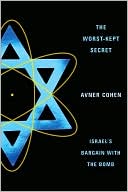Category Books
- Fiction Books & Literature
- Graphic Novels
- Horror
- Mystery & Crime
- Poetry
- Romance Books
- Science Fiction & Fantasy
- Thrillers
- Westerns
- Ages 0-2
- Ages 3-5
- Ages 6-8
- Ages 9-12
- Teens
- Children's Books
- African Americans
- Antiques & Collectibles
- Art, Architecture & Photography
- Bibles & Bible Studies
- Biography
- Business Books
- Christianity
- Computer Books & Technology Books
- Cookbooks, Food & Wine
- Crafts & Hobbies Books
- Education & Teaching
- Engineering
- Entertainment
- Foreign Languages
- Game Books
- Gay & Lesbian
- Health Books, Diet & Fitness Books
- History
- Home & Garden
- Humor Books
- Judaism & Judaica
- Law
- Medical Books
- New Age & Spirituality
- Nonfiction
- Parenting & Family
- Pets
- Philosophy
- Political Books & Current Events Books
- Psychology & Psychotherapy
- Reference
- Religion Books
- Science & Nature
- Self Improvement
- Sex & Relationships
- Social Sciences
- Sports & Adventure
- Study Guides & Test Prep
- Travel
- True Crime
- Weddings
- Women's Studies
The Worst-Kept Secret: Israel's Bargain with the Bomb » (New Edition)

Authors: Avner Cohen
ISBN-13: 9780231136983, ISBN-10: 0231136986
Format: Hardcover
Publisher: Columbia University Press
Date Published: September 2010
Edition: New Edition
Author Biography: Avner Cohen
Avner Cohen has been a public policy scholar at the Woodrow Wilson International Center for Scholars and a senior research scholar with the University of Maryland. He has published on subjects as varied as political theory, skepticism, nuclear ethics, nuclear proliferation, and Israeli history. He is the author of Israel and the Bomb and the coeditor of Nuclear Weapons and the Future of Humanity and The Institution of Philosophy.
Book Synopsis
Israel has made a unique contribution to the nuclear age—it has created (with the tacit support of the United States) a special "bargain" with its bomb. Israel is the only nuclear-armed state that keeps its bomb invisible, unacknowledged, opaque. It will only say that it will not be the first to introduce nuclear weapons to the Middle East.
The bomb is Israel's collective ineffable—the nation's last taboo. This bargain has a name: in Hebrew, it is called amimut, or opacity. By adhering to the bargain, which was born in a secret deal between Richard Nixon and Golda Meir, Israel creates a code of nuclear conduct that encompasses both governmental policy and societal behavior. The bargain lowers the salience of Israel's nuclear weapons, yet it also remains incompatible with the norms and values of liberal democracy. It relies on secrecy and opacity. It infringes on the public right to know and negates the notion of public accountability and oversight, among other offenses.
Author of the critically acclaimed Israel and the Bomb, Avner Cohen offers a bold and original study of this politically explosive subject. Along with a fair appraisal of the bargain's strategic merits, Cohen provides a critique of its antidemocratic faults. Arguing that the bargain has become increasingly anachronistic, he calls for a reform in line with domestic democratic values as well as current international nuclear norms. Most important, he believes the old methods will prove inadequate in dealing with a nuclear Iran. Cohen concludes with fresh perspectives on Iran, Israel, and the effort toward global disarmament.
The New York Times - Ethan Bronner
Unlike most critics of Israel's nuclear policy Mr. Cohen supports its decision to build and maintain the bomb. But he says that refusing to acknowledge this arsenal or foster internal discussion about it is now counterproductive…Agree or not—and Mr. Cohen acknowledges that a vast majority in Israel considers opacity a success—this exploration of the issues is thoughtful, measured and deep, and very much worthy of wide consideration.
Table of Contents
Preface
Acknowledgments
Introduction: Amimut as a National Nuclear Bargain
Abbreviations
1 The Birth of Amimut 1
2 The Case for Amimut 34
3 Israel's Nuclear Path: The Key Decisions 56
4 The Infrastructure of Amimut 88
5 The Citizenry: The Taboo Keepers 121
6 The Democratic Cost of Amimut: The Impact on the Citizenry 147
7 The Democratic Cost of Amimut: Governance 171
8 Domestic Reforms 203
9 Iran, the Fissile Materials Cutoff Treaty (FMCT), and Beyond 214
10 Toward a New Bargain 241
Epilogue 259
Notes 265
Bibliography 333
Index 357
Subjects
 Military History
Military History  Strategy & Weapons of War
Strategy & Weapons of WarHistory
 Middle Eastern History
Middle Eastern History  Israel / Palestine - History
Israel / Palestine - HistoryHistory
 Political History
Political History  Diplomacy & International Relations
Diplomacy & International RelationsHistory
 Political History
Political History  Middle Eastern Politics
Middle Eastern PoliticsHistory
 World History
World History  Jewish History
Jewish HistoryNonfiction
 Social Sciences
Social Sciences  Jewish Studies
Jewish StudiesNonfiction
 All Nonfiction
All Nonfiction  Diplomacy & International Relations
Diplomacy & International RelationsPolitical Books & Current Events Books
 International Relations
International Relations  Military Policy
Military PolicyPolitical Books & Current Events Books
 Middle East
Middle East  Israeli / Palestinian Politics
Israeli / Palestinian PoliticsPolitical Books & Current Events Books
 All Politics
All Politics  Diplomacy & International Relations
Diplomacy & International RelationsPolitical Books & Current Events Books
 All Politics
All Politics  Middle Eastern Politics
Middle Eastern PoliticsScience & Nature
 Social Sciences
Social Sciences  Jewish Studies
Jewish StudiesSocial Sciences
 Jewish Studies
Jewish Studies  Jewish History
Jewish HistoryNonfiction
 History
History  Military History
Military HistoryNonfiction
 History
History  Middle Eastern History
Middle Eastern HistoryNonfiction
 History
History  Political History
Political HistoryNonfiction
 History
History  World History
World HistoryNonfiction
 Politics & Current Affairs
Politics & Current Affairs  International Relations
International RelationsNonfiction
 Politics & Current Affairs
Politics & Current Affairs  Middle East
Middle EastNonfiction
 Politics & Current Affairs
Politics & Current Affairs  All Politics
All Politics
